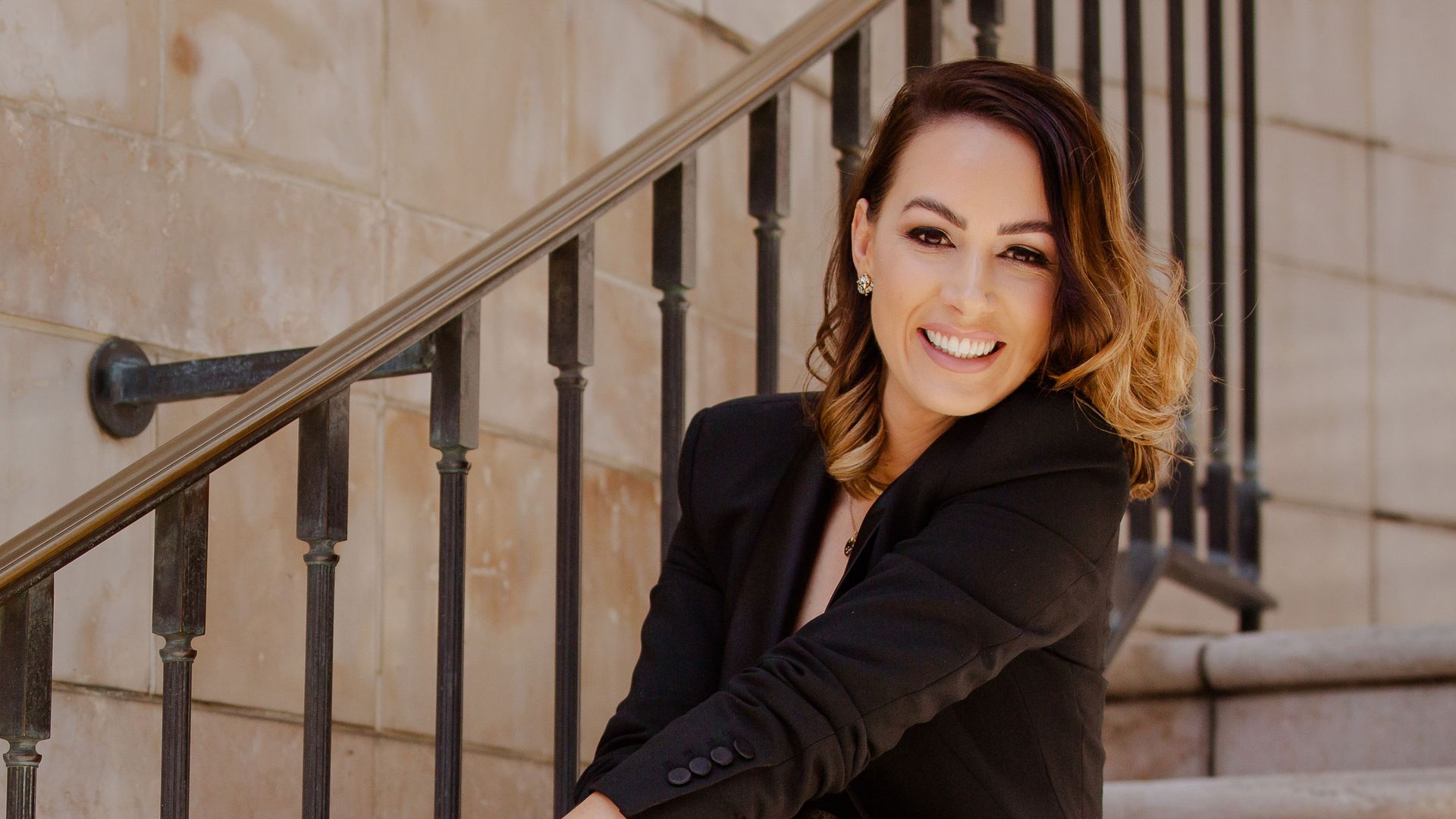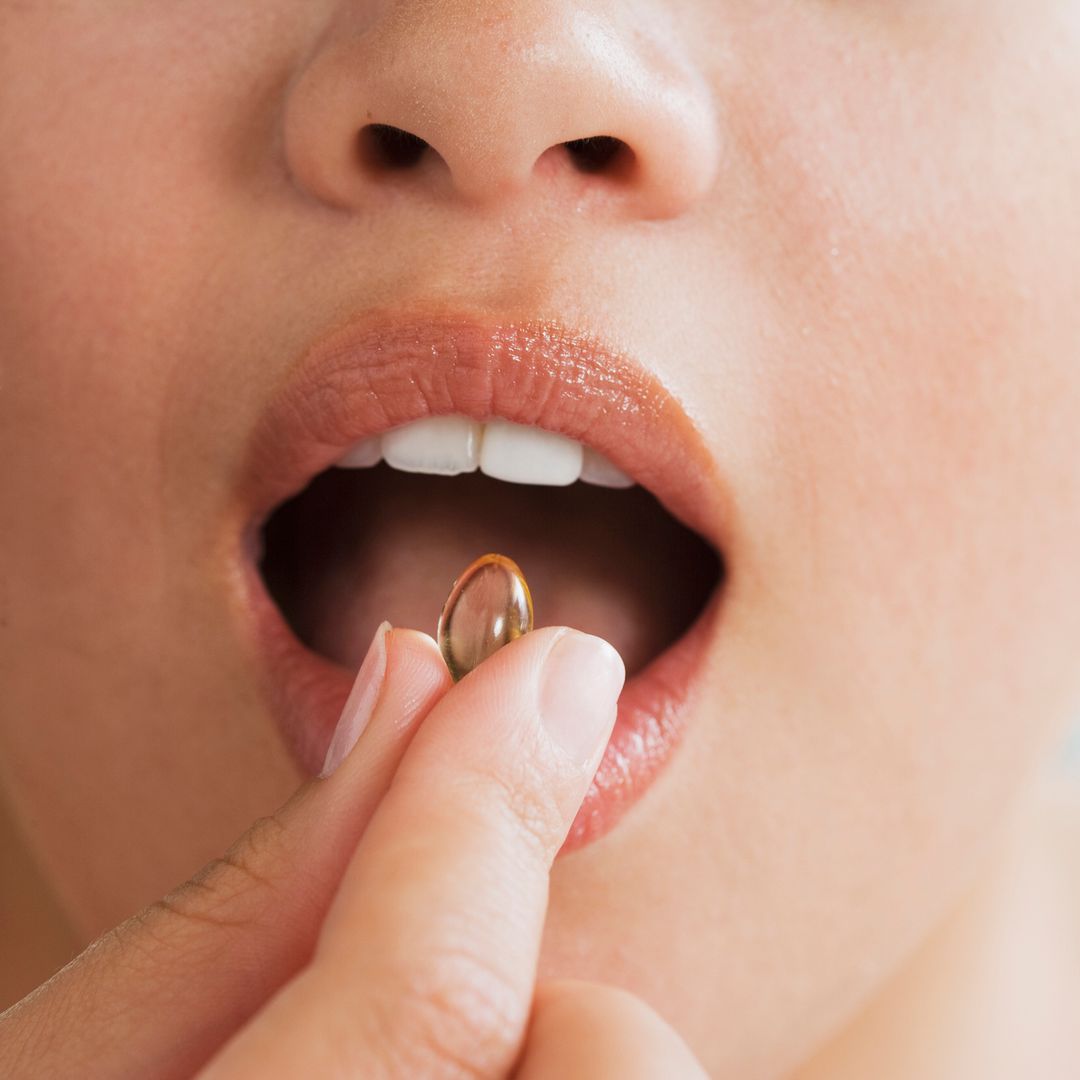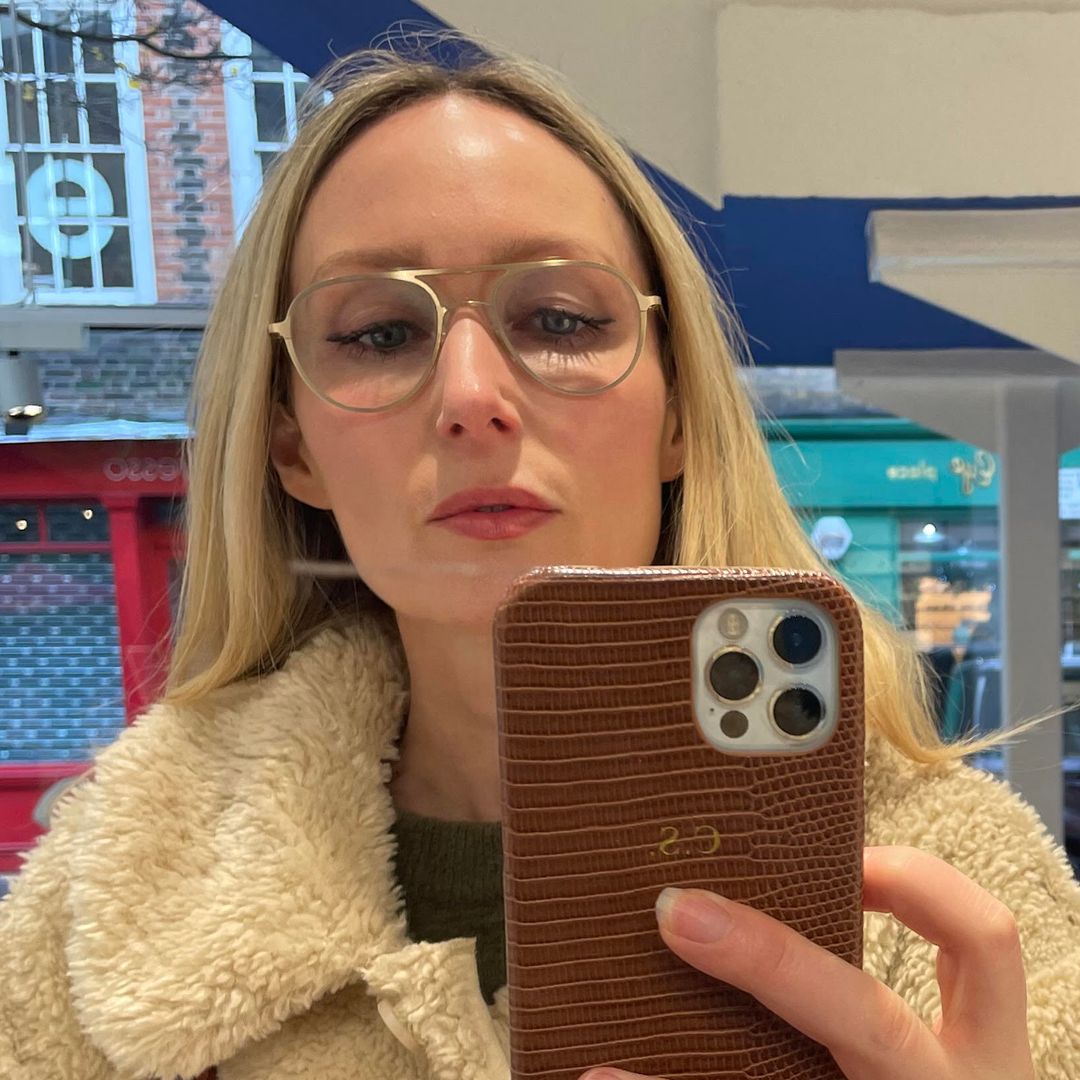I was in my 30s when I started to notice perimenopause symptoms. At the time I was a champion bodybuilder (a story for another time) so I put my symptoms down to the impact of being involved in such an extreme sport.
I figured the symptoms were due to my career in investment banking being so demanding and also having young twin daughters. I attributed my symptoms to so many things, like so many other women do.
I thought I was having a heart attack – but it was perimenopause
I remember sitting at work in 2018 and having my first heart palpitation. They felt so intense that I thought I was having a heart attack. I messaged my training coach and told her what happened and she told me to avoid any caffeine or stimulants that day. This may have, in hindsight, been an early sign of perimenopause symptoms starting.
It took me around four years of symptoms to be aware that it was perimenopause, and two years for medical experts to finally agree with me.
I originally went to my GP for a few main symptoms I was experiencing, including unexplained bleeding and pain. After multiple appointments, blood tests, scans, internals and even biopsies, I was given the all-clear and told I was healthy and well. But I wasn’t feeling healthy and well and went for a second opinion privately.
It was during that process I had my contraceptive coil removed for further checks and once it was replaced a week later, I noticed improvements in how I was feeling within the first 24 hours.
It was then the penny dropped for me that part of the symptoms I was suffering from were related to low progesterone (a key female sex hormone). The coil contains a synthetic form of progesterone, so the replacement coil supported that and became my very own live resource, or self-trial. This is the point I knew it was perimenopause and hormone-related.
Going through early perimenopause
Once it was confirmed that I was going through perimenopause, I remember crying down the phone to my doctor when told me that I was in early perimenopause and she 'didn’t know enough about menopause to support me further.'
Experiencing perimenopause at such a young age was a humbling and challenging time for me. I never for one moment thought I would be entering into perimenopause in my 30s, with young children and what I thought was, many many years ahead of me before that stage of life would even have been a consideration.
My initial response to hearing the words 'you’re perimenopausal' was relief, quickly followed by sadness and frustration that it had taken so long to get to that point of confirmation after two years of tests and checks.
MORE INSPIRATION: Menopause: How my weekly ritual helped me through midlife
Perimenopause made me leave my job
My debilitating symptoms eventually forced me to leave my job.
The company I worked for couldn't support me in my needs when I was going through perimenopause. I'd asked for six weeks of reduced hours while I adjusted to being on HRT and they refused.
I had worked hard to get to the position in my career that I was in, I loved the industry I was working in and the networks I had with it, yet resigning was one of the easiest things I have done in my life.
The option for me was to resign and support my health or remain at the detriment to my health. I chose my health.
Leaving my corporate career
Leaving my corporate career was one of the biggest risks I had ever taken. My nerves were shot, my anxiety through the roof and my heart palpitations were almost permanent, however it was also the most exciting and exhilarating experience of my life.
I was extremely blessed that my husband, Sean, was backing me 100% and was key to me finally resigning.
DISCOVER: Menopause confidence loss: how to regain your spark
I was so unwell I could barely function. Sean leaned forward to grab my attention and said something that quite literally changed my life. 'Leave. You’re made for more than this,' he told me.
I looked at him and started crying, because the pressure felt immediately lighter.
Forging a new path, post-menopause
Leaving my job was never my plan. It was petrifying to say goodbye to my salary, pension, benefits and career path, but I saw it as an opportunity to retrain as a menopause coach, using what I'd been through to help others.
I was already mentoring a few women on the weekends and had a passion and purpose for doing it.
I love how my role as a menopause coach quite literally changes lives. It saves marriages and partnerships, strengthens relationships and builds self-confidence. I love that I can call this my job.
My advice for people in menopause
You’re not broken. This is a time in our lives that we will all journey through, some with an experience that raises them up, others with challenges and struggles, but neither one alone.
Knowing you are not alone and that you have a community of powerful women ready to guide you and support you is important.
READ: Why we need to reframe perimenopause
Never feel alone, you’re one message or email away from guidance, so learn to ask for that help and allow yourself to flourish in menopause. This truly does get to be a time in your life that you can feel vibrant and free.
Find out more about how Adele can help you through menopause and perimenopause










